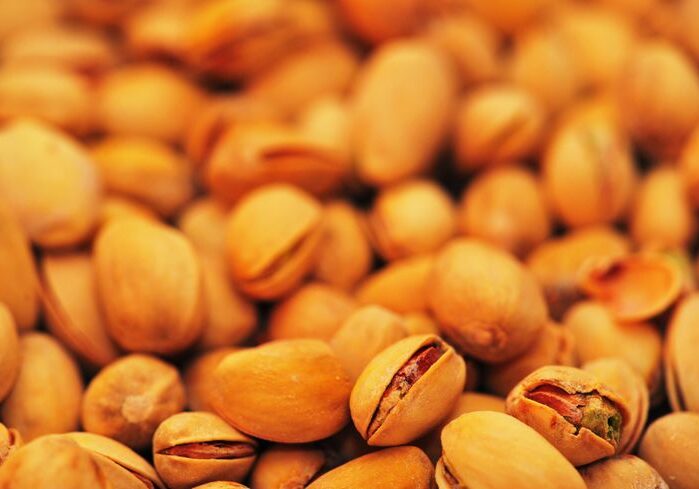
Tree nut allergy ranks as one of the most common food allergies for children and adults. An allergy to tree nuts is often life-long with only 9% of children outgrowing it. Siblings of children with a tree nut allergy may be at a higher risk food allergies and should be tested if an adverse reaction to foods is noticed.
What are tree nuts? Tree nuts include almonds, cashews, Brazil nuts, hazelnuts, pistachios, and walnuts.
Tree nuts differ from peanuts (a legume), but those with a tree nut allergy may have a higher chance of being allergic to other similar foods. Experts suggest tree nut allergy sufferers should avoid all nuts due to the likelihood of cross-contamination during processing or manufacturing.
If individuals with a tree nut allergy come in contact with the allergen, they could experience a severe, potentially fatal allergic reaction known as anaphylaxis. Those with a history of severe food allergies should carry an epinephrine auto-injector with them at all times. Caregivers and school personnel should be aware of a child’s allergy, be familiar with the signs and symptoms of food allergies and know how to properly deliver an epinephrine injection if needed.
Tree Nut Allergy Symptoms and Diagnosis
A tree nut allergy may cause a person to exhibit the following signs and symptoms within two hours of consuming tree nut products:
- Nausea and vomiting
- Abdominal pain and cramps
- Difficulty swallowing, throat tightness
- Diarrhea
- Nasal congestion and a runny nose
- Itching or swelling of the lips, tongue, throat, skin, eyelids, or other area
- Shortness of breath, coughing or chest tightness
- Anaphylaxis (a potentially life-threatening reaction)
If you or a child is experiencing an anaphylactic reaction, call 911 immediately.
If you or a child is experiencing non-life-threatening symptoms, schedule an appointment with an allergist as soon as possible for testing. During your appointment, the allergist will review your medical history and family history of allergies. They’ll ask detailed questions about the foods you eat, symptoms you experience, how long the symptoms last, and what helps make the symptoms better.
Skin-prick tests and/or blood tests may be used to discover if antibodies are present for a tree nut allergy. The skin-prick test is applied on small spot on your upper back or forearm with a small toothpick-like stylet. Concentrated tree nut extract is introduced into the uppermost layer of your skin. If small, raised hive develops then you likely have a tree nut allergy. Skin test results are available within 20 minutes of applying the test.
Blood tests involve taking a small sample of your blood and test it for immunoglobulin E (IgE) antibodies. IgE antibodies are like soldiers that hunt for specific food allergens. When IgE encounters the culprit food protein, it triggers an immediate release of chemicals responsible for the allergic reaction and associated symptoms. Blood tests results usually take about one week to return after being drawn.
Tree Nut Allergy Management
Similar to many other food allergies, the best way to treat and manage tree nut allergy is by avoiding contact with or consuming tree nut products.
While some individuals diagnosed with a tree nut allergy may tolerate other nuts, allergists caution patients to avoid all nuts. They can often be hidden in Asian dishes, salads, used as an ice cream topping or included in baked goods, sauces, and desserts.
If you or a child has a serious allergy, read all labels carefully and ask before ordering dishes at restaurants. If you are unsure, avoidance is the best option.
Treatment for Tree Nut Allergy Reactions
Allergies to food are some of the most common and dangerous. Patients are advised to carry an epinephrine auto-injector with them at all times for immediate treatment.
If serious reactions occur, call 911 immediately. Caregivers and teachers of children with a tree nut allergy should have access to an epinephrine auto-injector and be trained on administering epinephrine.
Tree Nut Allergy Suffers Should Avoid Food Containing These Ingredients:
- Almond
- Artificial nuts
- Brazil nut
- Cashew
- Chestnut
- Hazelnut
- Hickory nut
- Macadamia nut
- Marzipan
- Nut extract (artificial and natural almond or walnut extract)
- Nut butter (almond or cashew butter)
- Nut milk (almond or cashew milk)
- Nut meal
- Nut pieces
- Pecan
- Pine nut
- Pistachio
- Praline
- Walnut
Unexpected Sources of Tree Nut Products
Unexpected products may contain tree nuts. Check all labels before consuming products including:
- Alcoholic beverages (may contain nut flavoring)
- Meat substitutes – vegetarian or vegan foods may contain meat substitutes containing tree nuts
- Nut oils (almond and walnut oil)
- Sauces including pesto, glazes, and marinades
- Cereals, cookies, and crackers
- Candy and chocolates
- Energy bars
- Flavored coffee
- Lotions, hair care products, and soaps
Are you experiencing allergic reactions after eating foods containing tree nuts? Contact your allergy specialist and schedule a test to confirm if you have a tree nut allergy or to discover if you’re experiencing an allergic reaction to a different source.
